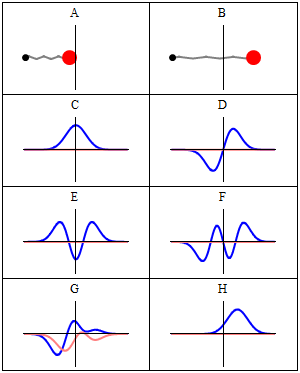Everettian quantum theory
- Introduction to Quantum Mechanics
- Wave-Particle Duality
- Schrodinger's Equation
- The Copenhagen Interpretation
- Introduction to Everettian Quantum Theory
- Implications of The Many-Worlds Interpretation
- Criticisms and Alternatives to Everettian Quantum Theory
Schrodinger's Equation
Understanding the Wave Function in Quantum Mechanics

Mathematical description of the quantum state of a system; complex-valued probability amplitude, and the probabilities for the possible results of measurements made on the system can be derived from it.
The wave function is a fundamental concept in quantum mechanics, playing a crucial role in describing the behavior of quantum systems. It is a mathematical function that provides the probabilities of the outcome of every possible measurement on a system.
Definition and Properties of the Wave Function
The wave function, often denoted by the Greek letter psi (Ψ), is a solution to Schrödinger's equation. It is a complex-valued function, meaning it can take on complex numbers, and it is defined over all possible configurations of a system.
The wave function contains all the information that can be known about a quantum system. It evolves over time according to Schrödinger's equation, and its absolute square gives the probability density for the system.
Quantum States and the Wave Function
In quantum mechanics, the state of a system is completely described by its wave function. A quantum state is a specific configuration that a quantum system can be in, and each state corresponds to a unique wave function.
The wave function can be thought of as a 'map' that assigns a complex number to every possible configuration of the system. These complex numbers, when squared, give the probability of finding the system in a particular state.
Role of the Wave Function in Describing Quantum Systems
The wave function is essential for predicting the outcomes of measurements in quantum mechanics. According to the Born rule, the probability of a particular outcome is given by the square of the amplitude of the wave function at that point.
For example, in the case of a particle in a box, the wave function can tell us the probability of finding the particle at any point within the box. The wave function is zero outside the box, indicating that there is zero probability of finding the particle outside the box.
In conclusion, the wave function is a central concept in quantum mechanics, providing a complete description of a quantum system. It is a solution to Schrödinger's equation and gives the probabilities of different outcomes for measurements on the system. Understanding the wave function is crucial for understanding the behavior of quantum systems.